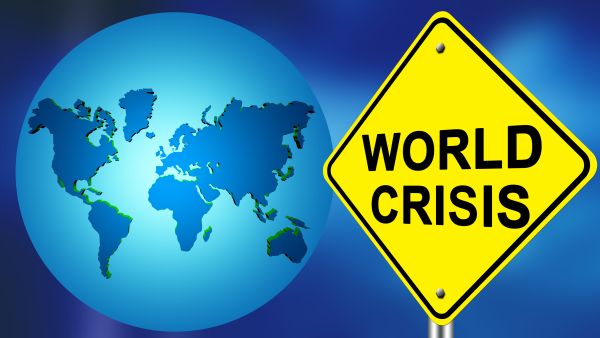ALBAWABA — The World Bank on Monday said any gross domestic product slowdown in China is likely to drag global growth down to its lowest level this century, ushering in a "lost decade" for the world's economy.
Ongoing inflation pressures, the lingering impact of the COVID-19 pandemic, the conflict in Ukraine and the ongoing risks to the worldwide banking sector are all acting to slow the global economy.
Rising productivity, higher incomes and declining inflation which helped one out of four developing countries reach high-income status over the past three decades are retreating, which in turn impacts government policies, spending, and interest rates, WB officials said.
"The result could be a lost decade in the making — not just for some countries or regions as has occurred in the past — but for the whole world," the officials added.
The WB urged policymakers to adopt ambitious initiatives to boost labor supply, productivity and investment in order to offset financial instability and high inflation weighing on productivity.
Failing to offset and control the expected worldwide slowdown in potential GDP growth would have profound consequences for the world’s ability to tackle climate change and reduce poverty, the WB's report said.
In a statement, WB economists said the world's potential growth — its maximum long-term growth rate without sparking inflation — is estimated to slow to an average annual rate of just 2.2 percent through 2030.
By comparison, in the early 2000s, that measure was 3.5 percent, and it was 2.6 percent for the most recent decade.
The aging population will also weaken the labor force in advanced economies and international trade has turned sluggish, leaning the WB to forecast a 1.7 percent growth rate in 2023.
Potential GDP growth could be boosted as high as 2.9 percent if nations focus policy on growing labor supply, cutting trade costs, leveraging growth in services, increasing productivity and incentivizing investment, the World Bank wrote in its report.
"All of these things will be curtailed because of weaker potential growth going forward," Ayhan Kose, World Bank director of the prospects group and chief economist for the equitable growth, finance, and institutions, said at a press conference.
"The slowdown we're describing could be much sharper if another global financial crisis erupts, especially if that crisis is accompanied by a global recession," Kose added.
China's economy will help keep the global economy from entering a recession due to an annual growth rate of 5 percent this year but as China's GDP slows its ability to keep the world's economy afloat will wane in the years ahead, the WB said.
"We've grown used to China being the tractor of the global economy, and that will have to change because China's growth rate is going to go down over time," Indermit Gill, World Bank chief economist and senior vice president for development economics, said during a press conference.
"Then the question is, what will we replace China with?" Gill added. "China won't be replaced by one country. What we have to do is figure out how every country can do better," noting that the world has to capitalize on the biggest structural changes that each country can make to keep the global economy running.







